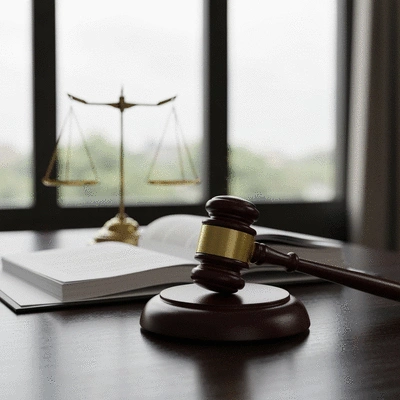What if the key to justice lies not only in the evidence presented but in the integrity of those who judge? The recent ruling by the Kentucky Supreme Court challenges us to rethink our assumptions about fairness in the legal system.
What You Will Learn
- The Kentucky Supreme Court overturned Kevon Lawless's conviction due to significant juror misconduct.
- Witness perjury was identified as a crucial factor that compromised the integrity of the trial.
- The ruling emphasizes the necessity of unbiased juries and fair trial processes in the justice system.
- This case highlights systemic issues surrounding wrongful convictions and the need for comprehensive legal reforms.
Kentucky Supreme Court's Decision: Key Factors Overturning Conviction
The Kentucky Supreme Court overturned a double homicide conviction based on critical issues that compromised the trial's fairness and integrity.
Juror Misconduct
Discussions outside court violated fair trial principles. This was a primary reason for the overturning.
Witness Perjury Allegations
Falsified testimony tainted presented evidence and judicial reliability.
Fair Trial Imperative
The ruling underscored every defendant's right to an unbiased jury and transparent process.
Broader Implications
The case highlights systemic issues in the justice system and the need for reforms.
Kentucky Supreme Court’s Decision: Overturning a Double Homicide Conviction
The recent ruling by the Kentucky Supreme Court regarding the double homicide conviction of Kevon Lawless has sparked significant discussion. This case centers around the tragic murders of Brandon Waddles and Trinity Randolph, which occurred in 2020. The court's decision to overturn Lawless's conviction highlights the complexities and challenges within our criminal justice system.
Initially, Lawless was convicted for the murders, a verdict that elicited strong reactions from the public. Many were shocked and saddened by the brutal nature of the crimes, and the outrage was palpable. Families and community members rallied for justice, demanding accountability and a thorough investigation. However, the legal proceedings took an unexpected turn, leading to this recent decision.

Understanding the Case: The Tragic Murders of Brandon Waddles and Trinity Randolph
To understand the significance of the Supreme Court's ruling, we need to revisit the details of the case. In 2020, Brandon Waddles and Trinity Randolph were found murdered, a tragedy that rocked their families and the local community. Their deaths raised numerous questions about safety and justice, as well as the effectiveness of the legal system.
- Brandon Waddles was just 20 years old at the time of his death.
- Trinity Randolph was only 17, leaving behind a heartbroken family.
- The case quickly drew media attention, highlighting community fears.
- Public support for the families grew, with numerous vigils held in their honor.
Kevin Lawless was ultimately convicted for these crimes, and the community's initial relief was soon overshadowed by concerns regarding the integrity of the trial process. As we delve deeper into the legal proceedings, it becomes clear that the circumstances surrounding this case are both heart-wrenching and complex.
The Legal Proceedings: What Led to the Overturning of the Conviction?
The Kentucky Supreme Court's decision was largely influenced by issues of juror misconduct during the trial. Reports revealed that certain jurors engaged in discussions outside of the courtroom, which directly contradicted their obligations. This misconduct raised significant questions about the fairness of the trial and whether Lawless received the justice he was due.
- Juror misconduct included discussing case details with individuals outside the court.
- Witness perjury was also identified as a critical factor affecting the case outcome.
- The court deemed these issues severe enough to warrant a retrial.
Moreover, the implications of witness testimony came into play. Allegations of perjury not only tainted the evidence presented against Lawless but also cast a shadow over the reliability of the entire judicial process. As the Kentucky Supreme Court reviewed these elements, it became evident that the integrity of the trial was compromised.
Insights from the Kentucky Supreme Court: Legal Reasoning Explained
The Kentucky Supreme Court meticulously reviewed the circumstances surrounding the trial, leading to their decision to declare a mistrial. Their ruling emphasized that a fair trial is paramount in ensuring justice is served. They outlined that every defendant has the right to an unbiased jury and a transparent legal process.
- Key legal standards regarding juror conduct were highlighted in the court's opinion.
- The ruling underscored the importance of maintaining juror integrity.
- Legal precedents regarding mistrials were referenced to support their decision.
This ruling is not just about one case; it represents a strong stance on the necessity for fair trials in Kentucky and beyond. It reinforces the critical need to uphold the rights of individuals within the criminal justice system, reminding us that the pursuit of justice must be unwavering.
Exploring Wrongful Convictions: Broader Context of the Case
As we reflect on the implications of this case, it’s essential to consider the broader context of wrongful convictions. The Innocence Project, for instance, has always aimed to shed light on critical issues, and this situation exemplifies the often-hidden challenges within our legal framework.
- Wrongful convictions can result from various factors, including juror misconduct and witness falsification.
- Such cases highlight the need for systemic reforms in the criminal justice system.
- Advocacy groups play a vital role in fighting against miscarriages of justice.
It's important for us as a society to advocate for reforms that can prevent such injustices. The role of organizations dedicated to addressing wrongful convictions cannot be underestimated, as they work tirelessly to ensure that every voice is heard and every story is told.
Frequently Asked Questions (FAQs)
- Q1: What was the primary reason the Kentucky Supreme Court overturned Kevon Lawless's conviction?
- A1: The primary reasons were significant juror misconduct, including discussions outside court, and allegations of witness perjury, both of which compromised the fairness and integrity of the trial.
- Q2: Who were Brandon Waddles and Trinity Randolph?
- A2: Brandon Waddles and Trinity Randolph were the victims of the double homicide that occurred in 2020, for which Kevon Lawless was initially convicted.
- Q3: What does the ruling imply about fair trials?
- A3: The ruling strongly emphasizes that a fair trial is paramount, asserting every defendant's right to an unbiased jury and a transparent legal process. It highlights the critical need to uphold the integrity of the judicial system.
- Q4: How do wrongful convictions occur, according to the article?
- A4: Wrongful convictions can result from various factors, such as juror misconduct and witness falsification, underscoring the need for systemic reforms in the criminal justice system.
- Q5: What is the broader impact of this case?
- A5: This case highlights systemic issues within the justice system, such as those that concern organizations like the National Association of Criminal Defense Lawyers (NACDL), and underscores the necessity of comprehensive legal reforms and community advocacy to prevent future miscarriages of justice.
We Want to Hear From You!
Given the complexities surrounding the Kevon Lawless case, what are your thoughts on the importance of juror integrity in ensuring a fair trial? Share your insights below:
Summarizing the Kentucky Supreme Court’s Overturning of a Murder Conviction
The recent decision by the Kentucky Supreme Court to overturn the murder conviction of Kevon Lawless marks a pivotal moment in the legal landscape surrounding this tragic case. It underscores the importance of ensuring that every individual receives a fair trial, a principle that must remain at the core of our justice system. This case has brought forth intense discussions regarding juror conduct and the integrity of the judicial process.
Key developments in this case include the revelation of juror misconduct and witness perjury, which significantly tainted the original trial. As we reflect on these critical issues, it’s essential to remember the broader implications of this ruling, not just for Lawless and the victims but for the entire community.

- The Kentucky Supreme Court cited misconduct as a primary reason for overturning the conviction.
- The case highlighted the role of advocacy groups in addressing wrongful convictions.
- This decision emphasizes the necessity of transparency within the judicial process.
As we move forward, the significance of fair trials and robust community advocacy cannot be overstated. It’s these principles that help ensure justice is not just a concept, but a reality for all.
Join the Conversation: Engaging with Ongoing Updates
As developments continue to unfold regarding the Kevon Lawless case, I encourage you to stay engaged and follow the updates closely. Understanding the intricacies of this case can foster meaningful discussions about justice and community resilience. At The Stone Builders Rejected, we are committed to bringing you the latest news and insights as they emerge.
Consider supporting victim advocacy initiatives and participating in community discussions. Your voice matters! Here are a few ways you can get involved:
- Follow local news outlets for real-time updates.
- Join community forums to discuss the implications of the ruling.
- Support local organizations advocating for victims' rights.
Let’s keep the conversation going and work together towards justice for victims and their families!
Recap of Key Points
Here is a quick recap of the important points discussed in the article:
- The Kentucky Supreme Court overturned Kevon Lawless's double homicide conviction due to juror misconduct and witness perjury.
- The ruling emphasized the importance of fair trials and the integrity of the judicial process.
- Community advocacy played a crucial role in addressing the issues surrounding wrongful convictions.
- The case highlights systemic challenges within the criminal justice system that need reform.






